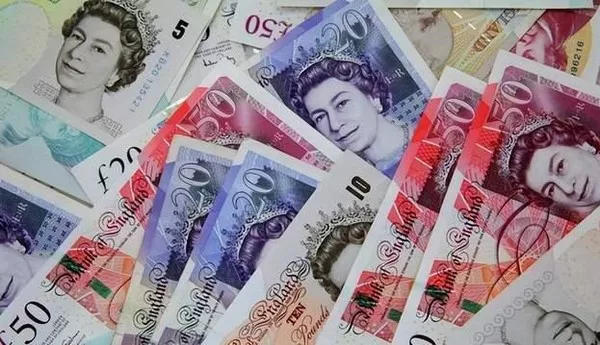The exchange rate between two currencies is an important parameter that reflects the economic strength of a country. The US dollar and British pound are two prominent currencies in the world economy. The value of one currency against the other plays a crucial role in determining the trade balance, foreign investment, and overall economic growth of both countries. In this article, we will delve into the factors affecting the Dollar to Pound exchange rate and its current value.
Value of the Dollar to the Pound
As of April 2023, the value of one US dollar is approximately 0.72 British pounds. This means that one pound can buy 1.39 dollars. The value of the pound has been affected by various political and economic events such as Brexit, changes in interest rates, inflation, and government policies.
Factors Affecting the Dollar to Pound Exchange Rate
1. Brexit and Political Uncertainty
Brexit has been a significant factor in the value of the pound against the dollar since the referendum in June 2016. The decision of the UK to leave the European Union has created uncertainty in the market, leading to fluctuations in the exchange rate. The negotiations between the UK and EU have also affected the value of the pound. Any progress or delay in the talks impacts investors’ confidence, leading to changes in the exchange rate.
- Negotiation Progress
The progress made in negotiations between the UK and EU affects the exchange rate. Positive news about trade deals and agreements can lead to an increase in the value of the pound against the dollar. On the other hand, delays or failure to reach agreements can result in a decrease in the value of the pound.
- Political Instability
Political instability in either the US or the UK can impact the exchange rate. This includes changes in leadership, government policies, and geopolitical tensions. For example, during the US presidential election of 2020, the exchange rate between the pound and dollar fluctuated due to uncertainty about the outcome.
2. Interest Rates
Interest rates are another significant factor that affects the exchange rate. The interest rate is the amount charged by lenders to borrowers for the use of money. When a country’s interest rates increase, it attracts foreign investment, leading to an increase in demand for the currency. This increases the value of the currency against other currencies, including the US dollar.
- Central Bank Decisions
The decisions made by central banks regarding interest rates affect the exchange rate. For example, the Bank of England‘s decision to increase interest rates can lead to an increase in the value of the pound against the dollar.
- Inflation
Inflation or the increase in the general price level of goods and services affects the interest rates. High inflation leads to an increase in interest rates, which in turn increases the value of the currency. Therefore, any change in inflation rates affects the exchange rate.
3. Balance of Trade
The balance of trade is the difference between a country’s exports and imports. A higher export value than import value leads to a surplus, while a higher import value than export value leads to a deficit. A country with a trade surplus has a stronger currency than a country with a trade deficit.
- Country-Specific Industries
Certain industries in a country contribute significantly to its export revenue. For example, the UK’s financial and service sector generates a substantial amount of export revenue. Any changes in the performance of these sectors can impact the balance of trade and the exchange rate.
- Global Economic Conditions
Global economic conditions can also affect the balance of trade and the exchange rate. For instance, during the COVID-19 pandemic, there was a decline in global trade as countries imposed restrictions on travel and businesses. This led to a decrease in demand for currencies, leading to a decrease in the exchange rate.
In conclusion, the exchange rate between the US dollar and British pound is affected by several factors such as political events, interest rates, and the balance of trade. Investors and businesses closely monitor the exchange rate to make informed decisions regarding foreign investments and trade. While fluctuations in the exchange rate can bring risks, it also presents opportunities for investors to capitalize on changes in the market.
Related Topics:


























